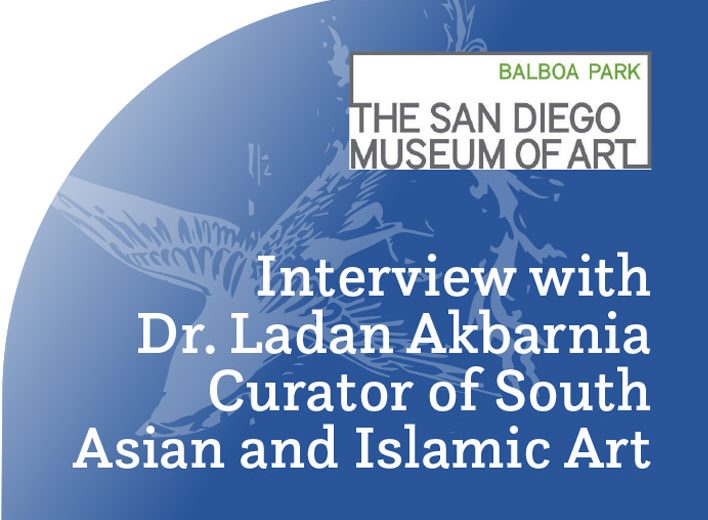An Immigration Story: Kingsville
Reza Khabazian
Leaving your homeland and residing in another – with a totally new culture, language and set of laws and regulations – is very challenging and requires a lot of adaptation that, in most cases, is also very frustrating.
But, looking back at those challenges many years later makes some of them look funny, some amazing, and some, of course, sad.
The truth is, no matter how we feel about them, the challenges are, for sure, part of the history of immigration that needs to be documented for use by our grandchildren or simply by historians to picture the hardship that first generation Iranians had to go through to meet those challenges.
The main purpose of this column is to encourage our readers to start telling their stories so we can present a diverse documentary. The first of this series–“How I Met A Dime”–was published in the May-June 2021 issue of Peyk. This is the third part of Mr. Khabazian’s story.
As expected, academically, my student life at Kingsville was going very smoothly.
College was full of Iranian students—mainly in the departments of engineering and agriculture—which was a blessing in one sense and detrimental in another sense. Having a number of Iranian students facilitated the process of adaptation to my new life but, at the same time, made expanding my English vocabulary more difficult.

Saeed, a student in the Engineering Department, was one of my first acquaintances. He was a very well-organized student with a remarkable knowledge of English in the final year of his studies. It was in his room that I met Jack. Contrary to Saeed, Jack was a lifelong student who showed no interest in graduating from the college. He regarded himself an expert in American life who knew the answer to any question raised by a newcomer like myself.
“Look, Reza, all of us who came to AAMRIKA had some difficulty to know the laws and regulations. Let me give you an example. A few months after my arrival, I got pulled over by a cop while driving. The officer came to my side of the car and politely said:
‘Good afternoon. Do you know why I stopped you?’
– ‘No, Officer,’ I replied.
‘I stopped you because you were driving 65 in a 30-mile-an-hour zone,’ he emphasized. ‘What was the rush?’
– ‘I was just following the sign that said 65 miles,’ I replied with utmost confidence.
‘Where did you see such a sign?’ he asked with great shock and surprise.
‘A few hundred feet behind us,’ I told him, pointing toward the direction of the sign.
‘Why don’t you drive in front and show me the sign.’
So, Reza, I started to drive slowly and the officer was following me till we arrived at the location.
‘Look, Officer! Actually the sign says 64.9 and I was just driving a fraction of a mile more than what was permitted!’
– ‘Sir! What you are referring to is not a speed limit, but the price of gasoline,’ he replied, trying hard not to laugh out loud.”
Jack’s story made me feel better—and he came to my aid in another way. Most Iranian students were dependent on receiving money from the homeland, but a few, like myself, had to manage financial needs by working at odd jobs. When the small savings my wife and I had left neared depletion, finding a job became a necessity. This is when Jack came to my rescue. As I was walking on campus one day, I heard him calling me:
“Reza, I found you a job!”
“Thanks, Jack, what is it?”
“I was at Kmart the other day and I noticed they are looking for help. Just go there today before the position is filled.”
“Oh my God! You are a lifesaver! I will definitely go today right after my classes.”
“As you enter the store, go all the way to the back, then turn left and you’ll see the sign for help. Don’t delay! Ok? Kmart is a very good company to work for.”
After class, I rushed home not only to bring the good news to my wife, but also to change into a nice outfit before I drove to Kmart with utmost excitement. Following Jack’s directions, I got to the end of the store, turned left, and saw a long metal pole that was holding a sign that read “Need Help” with a small metal switch right in reach. I waited a few minutes looking for someone who I could ask about a job opportunity, but I was unsuccessful.
With hesitation, I reached the metal switch and turned it upward. A blue light started revolving at the top and, in no time, one of the employees came to me:
“Can I help you?” Kmart Lady asked.
“ Yes! I am here to apply for a job,” I replied.
“But we are not hiring at this time,” she emphasized.
“Escuse me, Madam, but this sign says you are,” pointing at the “Need Help” sign.
“This is not an employment sign, rather a sign that customers can call us if they need help in the store.” And with that she pressed on NEED HELP and the blue light appeared again.
– “Oh…. I am sorry, I am sorry, I am sorry!”
– “No problem… have a good day,” she said while walking away.
That incident closed the book of Jack for me forever.
I realized: “I need to do all I have in my power not to be like him. I need to improve my vocabulary and knowledge of English seriously so to stop embarrassing myself.”
The next time I saw Saeed, I told him the Kmart story. He almost fainted from laughing and encouraged me to be patient, emphasizing that I should focus on my school work and keep looking at the classified section of the daily paper. The advice paid off and in a few weeks I found my first job at a local motel as a maintenance person.
Saeed believed listening to radio stations, watching movies, and reading papers were the best ways to upgrade vocabulary. But I was too embarrassed to tell him that the way news anchors and movie characters spoke was too fast for me to follow. The problem persisted until the day I was at a small store close to our apartment in which I heard a piece of music whose lyrics I could entirely understand.
“Escuse me, Sir, what is this station?” I asked the clerk.
“Ny…Fo…Van FM,” he replied with a very heavy southern accent.
“What is the name of this music? What type?” I asked.
“Cown…try music.”
Finally, I’d found my cup of tea and became the only Iranian with dark hair and a big black mustache constantly listening to the 94.1 FM Country Music station and memorizing the lyrics!!
“Sitting on my porch on Saturday ni…….ght”
“Beer in my hand all thru the ni……..ght”
Or:
“Loving you is wro……..ng…..I don’t wanna be right.”
Not too long after my exposure to Country Music, the second outlet for improving my English arrived by mere accident. Turning channels on our small black and white television on a Sunday morning drew my attention to a program that was broadcasted from an event at a Mega Church. The pastor—with a zillion eye catching emotions and an easy-to-understand vocabulary—was speaking to an amazingly large crowd. His incredible passion got me mesmerized as well as the crowd listening to him with tears running down their faces.
The fact that I could more or less understand him, plus his enormous energy and passion, got me hooked to become one of his regular listeners; however, the book of religion was shut for me a long time prior, starting from my college years in Iran. Perhaps I was the only follower of this pastor who was not interested in what he was preaching but how he was speaking… to such a degree that missing some heavy words such as resurrection, gospel, and so on did not deter me from looking forward to the next Sunday! It was such a laughing matter for me to listen to one of his speeches in which he was trying to convince his listeners that Fidel Castro was to blame for overflowing the drug market in America solely because of his intention of deterring American youngsters from learning the teachings of Jesus Christ!!
It showed clearly how similar their mindset is from the Mullahs in Iran who were posing to bring democracy to replace the so-called dictatorship of the Shah’s regime.
The third outlet that I found to improve my English was listening—and most of the time memorizing—the commercials broadcasted on television and on the radio. Lines such as “Maxwell House is coffee you can count on” has been engraved in my mind even after so many years!
It did not take too much time for me to realize that the environment of our college was so divided. The majority of students were whites followed by Hispanics and Iranians and other minorities. Due to the fact that whites were very hesitant to mingle with nonwhites, the Iranians either gathered around their own countrypersons or got involved with Hispanics, whose culture was not too far away from Iranian culture. This closeness was the root of a number of emotional relationships, many of which ended in family unions (often, male Iranian students marrying female Hispanic students), which provided opportunities to achieve green cards to stay in the U.S. as the political situation in Iran worsened.
Those exposures played, without a doubt, a major role of knowing about the culture of America, which included getting familiar with the concept of Christmas and New Year as well as Thanksgiving, Halloween, Cinco de Mayo, Fourth of July, Memorial Day, and Labor Day. Adding to the above list, learning about the regulations of baseball, football, and other sports events were necessary to have something to talk about with Americans at large.
The major gathering for Iranians was in front of television sets listening to the news of a serious uprising that was happening in the homeland. Fiery discussions after any daily news between students belonging to Moslem student organizations and those claiming to belong to the left soon became a daily norm.
The situation got worse as the homeland went through a revolution that will be the topic of the next issue….


















